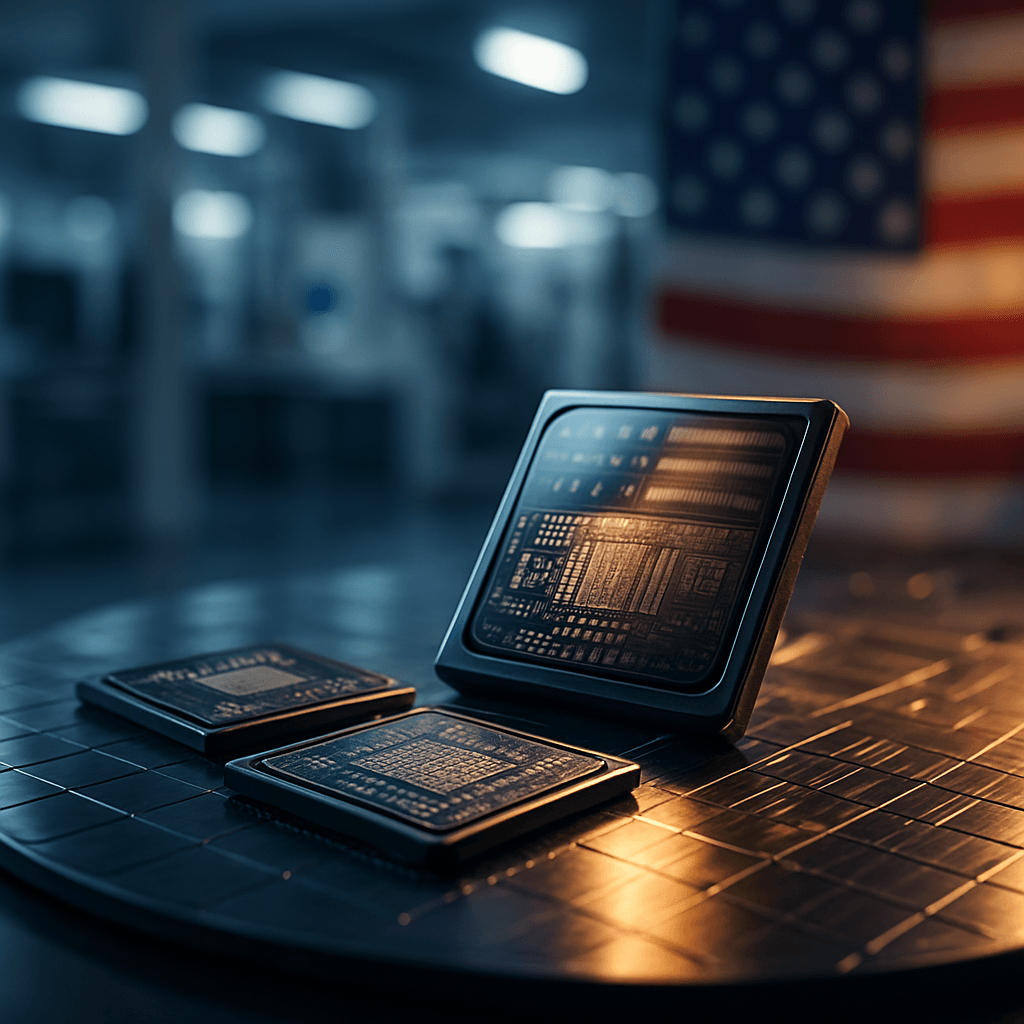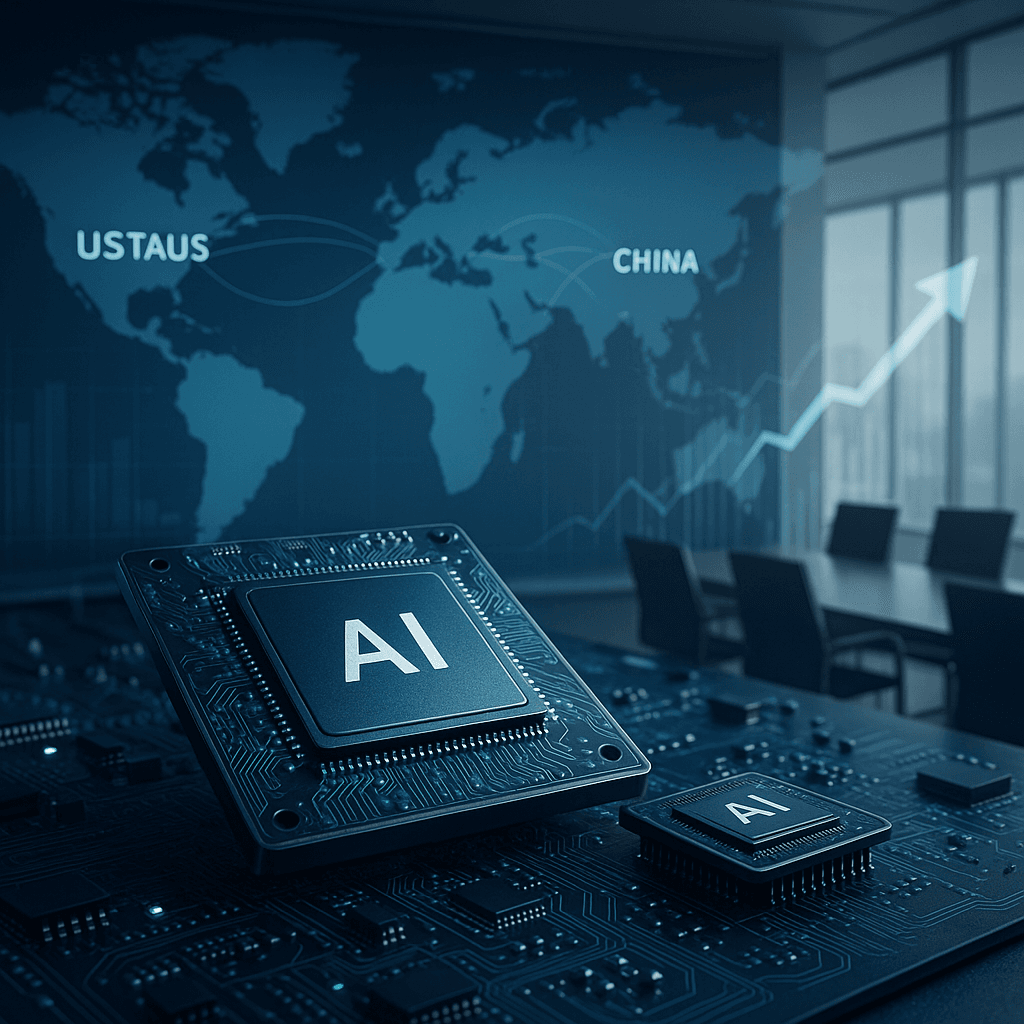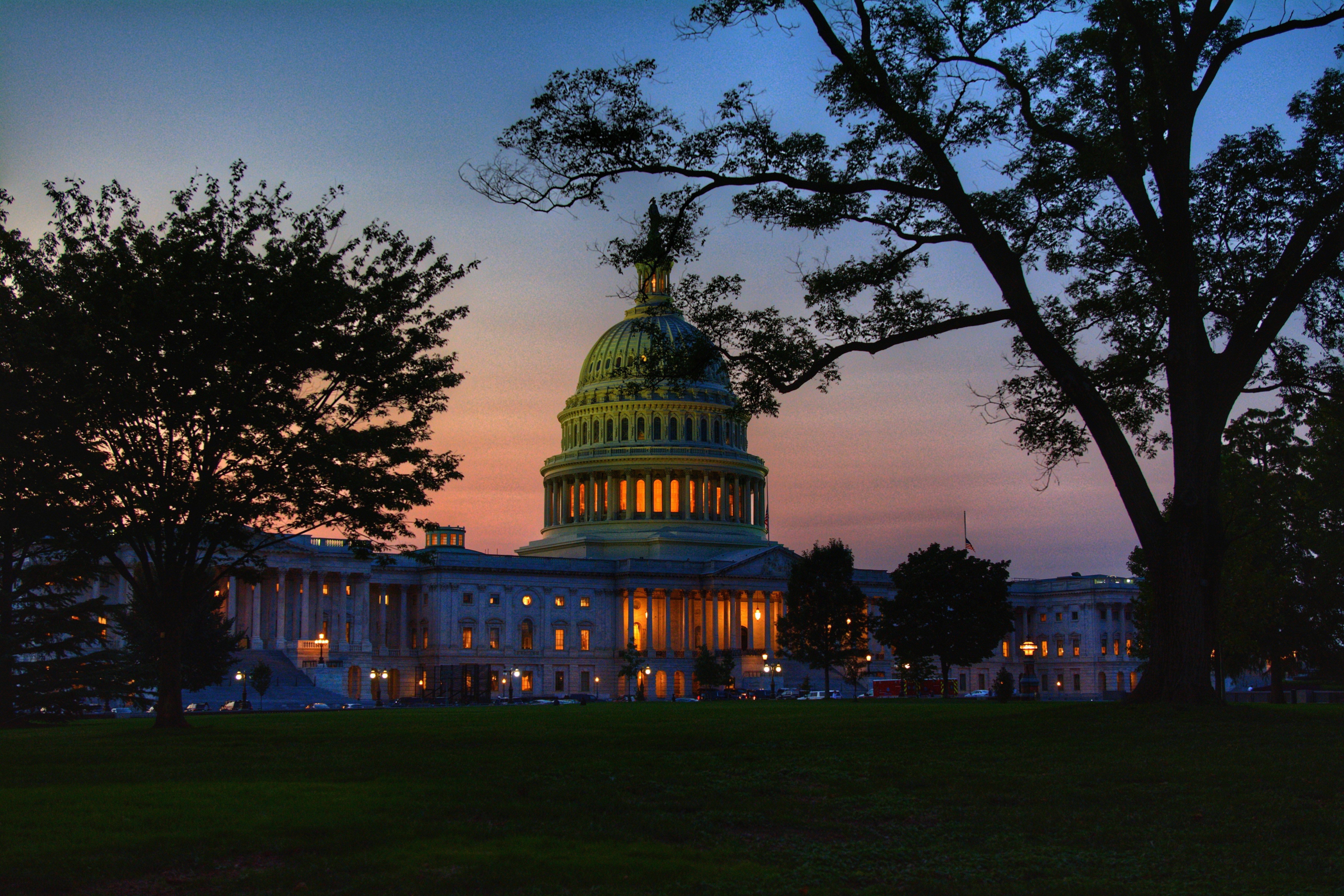President Trump escalated his semiconductor trade war Thursday night, reaffirming plans for "fairly substantial" tariffs on chip imports while carving out explicit exemptions for companies like Apple that commit to US manufacturing. The announcement at a White House tech dinner signals the administration's most aggressive move yet to reshape the global chip supply chain.
The gloves are coming off in America's semiconductor sovereignty push. President Trump used Thursday night's White House tech summit to double down on his most ambitious trade policy yet, warning that "fairly substantial" tariffs on chip imports will hit companies that haven't committed to US manufacturing. But for Apple and other domestic investors, it's a different story entirely. "Tim Cook would be in pretty good shape," Trump told the assembled tech titans, regarding the potential import levies that could reshape the global semiconductor landscape. The comment came during a dinner with over two dozen industry leaders, including Apple CEO Tim Cook, Meta's Mark Zuckerberg, and Oracle CEO Safra Catz. Trump's semiconductor gambit builds on his previous threat of 100% tariffs announced last month, when Apple responded by pledging an additional $100 billion to domestic manufacturing on top of a $500 billion commitment made in February. The carrot-and-stick approach appears to be working. "If they're coming in, building, planning to come in, there will not be a tariff," Trump explained to the gathered executives, outlining the administration's strategy to use trade penalties as leverage for reshoring critical technology production. The policy represents a dramatic escalation of America's chip independence campaign that began gaining momentum in 2020. Since then, semiconductor giants TSMC and Samsung Electronics have committed hundreds of billions to building advanced fabrication plants on American soil, investments that now appear prescient given Trump's tariff threats. Market watchers expect these major players to receive exemptions under the new policy framework, though Trump offered few specifics about implementation timelines or exact tariff rates during Thursday's gathering. The semiconductor industry has been bracing for this moment since Trump's return to office. Global chip supply chains, dominated by Asian manufacturers, now face potential disruption as the administration prioritizes domestic production over cost efficiency. Companies without US manufacturing footprints could find themselves at a severe competitive disadvantage overnight. The White House dinner also highlighted the broader realignment happening in Silicon Valley's relationship with Washington. Tech leaders from 's Sam Altman to co-founder Sergey Brin reportedly showered praise on Trump's pro-business and AI policies, signaling the industry's embrace of the administration's agenda. Notably absent was CEO Elon Musk, who cited scheduling conflicts but said he would send a representative. The absence comes months after a public spat between Musk and Trump, though relationships in tech and politics remain fluid. The semiconductor tariff announcement coincided with the second meeting of the White House Task Force on Artificial Intelligence Education, where First Lady Melania Trump emphasized the need to "manage AI's growth responsibly." The dual focus on chip manufacturing and AI leadership underscores the administration's view that technological sovereignty requires control over both hardware production and software innovation. For , the exemption represents validation of its strategic pivot toward US manufacturing. The company's $600 billion total commitment to domestic production now looks like insurance against trade disruptions that could impact competitors still reliant on overseas suppliers. Industry analysts expect the tariff threat to accelerate already-planned US investments while potentially derailing projects still in overseas locations.












